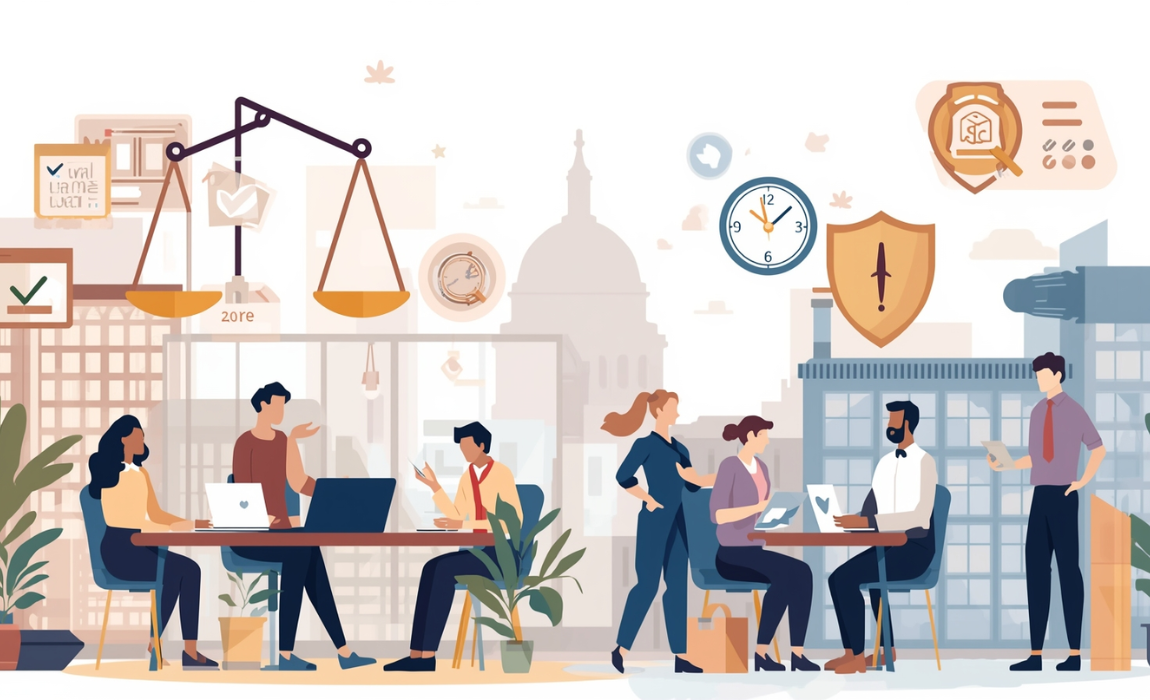
"Labor Laws in the Modern Era: Adapting to Change"
Work has always been central to human life. It gives us money to survive, but also a sense of dignity and security. To make sure workers are treated fairly, every society creates labor laws. These laws decide things like wages, working hours, safety rules, and social security. But today, the world of work is changing fast, and many old laws no longer fit the new realities. Updating them has become a major need of our time.
One of the biggest changes is technology. Machines, robots, and artificial intelligence are taking over many traditional jobs, while creating new types of work. The rise of gig platforms—like ride-sharing apps or food delivery services—has provided millions of jobs, but most gig workers don’t enjoy the protections that regular employees have. They often don’t get benefits like minimum wages, health care, or pensions. Labor laws were designed for fixed jobs in factories and offices, not for people working on apps. This gap needs urgent attention.
Globalization is another major factor. Companies now spread their operations across countries. Many jobs are outsourced to cheaper markets. This creates opportunities but also problems like low wages, long working hours, and unsafe working conditions in poorer countries. Since laws differ from one country to another, workers often suffer. This is where global rules, such as those by the International Labour Organization (ILO), become important to set minimum standards of fairness everywhere.
The demand for equality at the workplace has also grown. Modern labor laws try to prevent discrimination based on gender, caste, race, or disability. But even today, women often earn less than men for the same work and face barriers in leadership roles. In many countries, informal workers—like street vendors or daily wage laborers—remain outside the protection of labor laws. Extending rights to these groups is necessary to make the system fairer.
The COVID-19 pandemic changed how we think about work. Millions of people started working from home, and many continue to do so. This has brought flexibility but also new problems. For example, when the home becomes the workplace, who ensures safety? When employees are always online, how do we draw a line between work hours and personal time? Labor laws must evolve to protect workers from overwork, stress, and unfair expectations in this new “remote work” culture.
Another important part of labor laws is social security. Jobs today are less permanent than they used to be. Workers move between industries, take up gig work, or face layoffs due to automation. To deal with this, stronger protections like health insurance, pensions, and unemployment benefits are needed so that workers don’t lose their dignity when jobs change.
At the same time, it is important to balance the needs of workers and employers. If laws are too strict, businesses may struggle and investments may fall. If laws are too weak, workers may be exploited. The real challenge is to create rules that protect workers while also supporting economic growth and innovation.
Conclusion:
Labor laws are not just old rules from the past—they must keep changing with society. The modern world of work is shaped by technology, globalization, gig jobs, and remote work. These changes bring both opportunities and risks. By updating labor laws, we can make sure workers are treated fairly, businesses can grow, and progress benefits everyone. A truly modern society is one where work brings not just income, but also dignity and respect for all.
